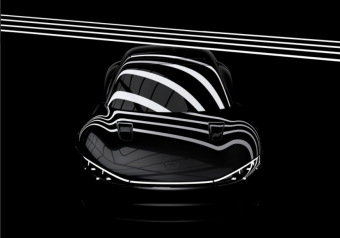
In 2013, Volkswagen introduced the XL1, a super efficient passenger car whose claim to fame was that it needed only 1 liter of gasoline to travel 100 kilometers. Back then, nobody could have predicted that the EU, the UK, and several other nations would be thinking of banning the internal combustion engine by 2035 or sooner.
Just 8 years later, nobody cares about the efficiency of conventional cars. Instead, the conversation today is about efficient powertrains for battery electric cars. Most new EVs have a range of about 250 miles. Some can go 300+ miles without charging. A few can go 350 or even 400 miles. But now Mercedes says it is hard at work on the spiritual successor to the XL1 — the EQXX.
Mercedes has released a few teaser photos of the EQXX, so we know it will be either a coupe or a sedan with a long, sloping roofline designed to allow it to slip through the air easily. In fact, the company says it is aiming for a Cd of 0.20 or less. To put that into perspective, the Tesla Model 3 has a Cd of 0.24. The new Mercedes EQS boasts a Cd of 0.20. The EQXX could beat that.
More:
Mercedes is not ready to tell us much more about its new car. It says we will have to wait until the official reveal sometime next year for details. It also says the EQXX may not turn out to be a production car, but its DNA may very will find itself into future electric models from the company.
Aerodynamics are a critical factor for electric cars. The more smoothly they cleave the air, the further they can go on a single charge. But the efficiency of the drivetrain is also important. Mercedes says it is leveraging the expertise of the High Performance Powertrain team that makes the engines for its Formula One racing team.
Mercedes aims to boost the energy density of the battery by 20 percent compared to the recently introduced EQS. The EQXX will cover more than 6 miles per kilowatt-hour, according to Motor 1. (A Tesla Model 3 goes about 4 miles per kilowatt-hour.) The company says it doesn’t intend simply to install a massive battery to achieve high range. Instead, the model will have the same pack being planned for a future compact car. Based on the projected range and efficiency, expect a battery pack of about 104 kWh, Motor 1 says.
As Mercedes prepares to up its electric car game, potential customers are still fixated on how far they can go before they need to recharge. Many people fear being caught far away from home with no charging station available nearby. Offering well engineered, well designed EVs with up to 620 miles of range should be just what the doctor ordered to allay those fears.
Source: Clean Technica



